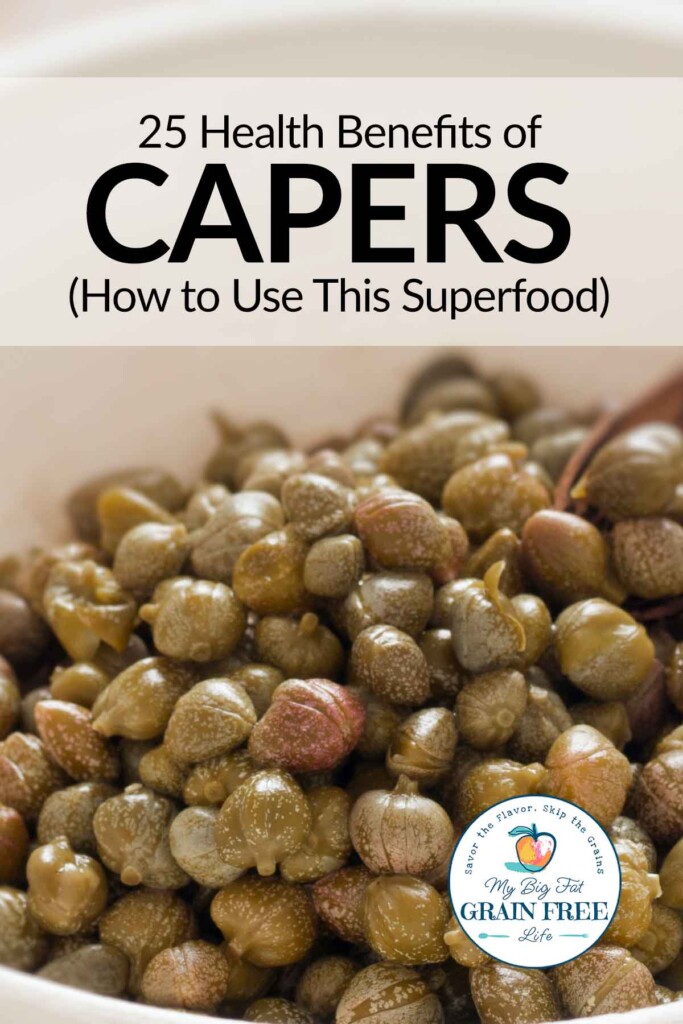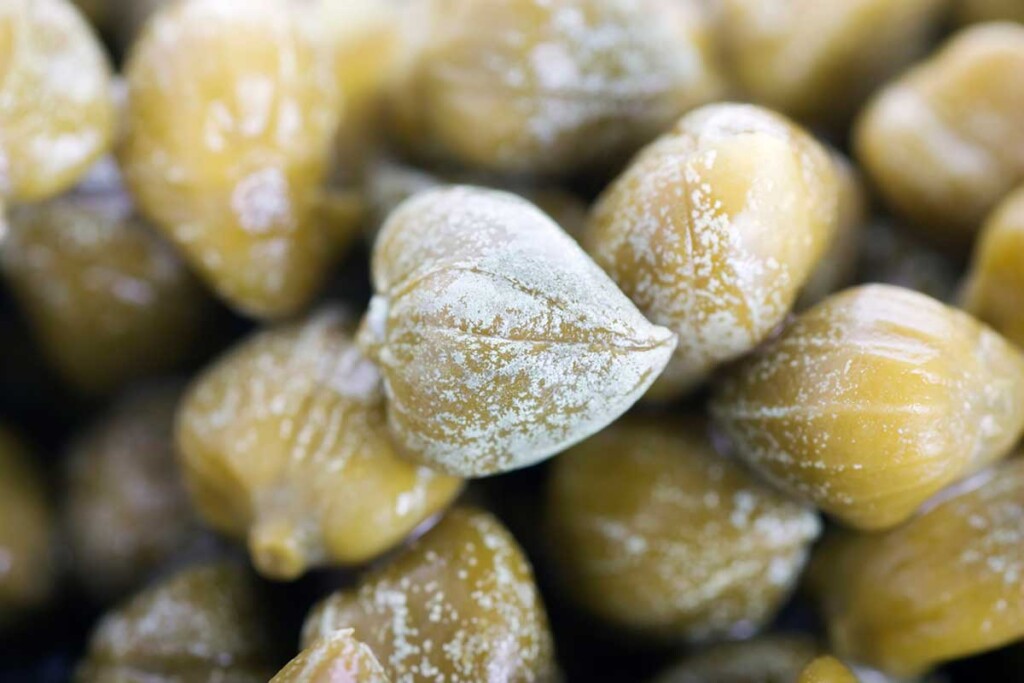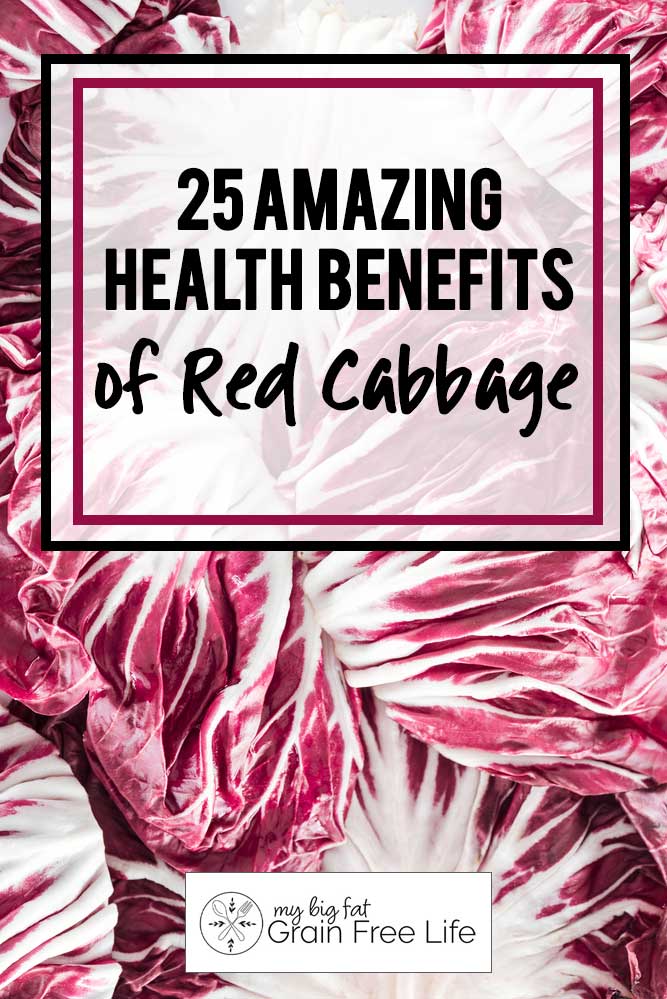25 Health Benefits of Capers (How to Use This Superfood)
This post may contain affiliate links. If you make purchase after clicking a link, I may receive a commission at no extra cost to you.
Last Updated on December 8, 2023
Discover the incredible health benefits of capers and learn how to incorporate this superfood into your diet.

Health Benefits of Capers
Capers are a small but mighty superfood full of nutrition, flavor, and health benefits. These tiny little buds have been used for centuries in Mediterranean cuisine and traditional medicine. Not only do they add a bright, tangy flavor to dishes, but they also offer a wide range of health benefits.
Before we cover all the health benefits of capers, let’t learn a little about them.
What Are Capers?
Capers are the flower buds of the caper bush, also known as Capparis spinosa. These bushes are native to the Mediterranean region, where they have been cultivated for centuries. The buds are harvested just before they bloom and are then pickled or used in various culinary preparations.

What Do Capers Taste Like?
Some people compare the unique flavor of capers to that of olives, while others explain it as tangy, slightly briny, and lemony. The taste can vary depending on the size of the capers, with small capers being more intensely flavored than larger capers.
Are Capers a Superfood?
Capers may be small in size, but they certainly qualify as a superfood. Full of essential nutrients, vitamins, and antioxidants, capers offer a wide range of health benefits that can contribute to overall health. From improved heart health to enhanced digestive function, capers are a nutritional powerhouse worth adding to your daily diet.
Capers Nutrition
When it comes to nutrition, capers are surprisingly a rich source of essential vitamins and minerals.
They are a great source of vitamins A, K, and C, providing a healthy dose of antioxidants that support a strong immune system.
Additionally, capers are a good source of iron, calcium, and magnesium, which are vital for maintaining healthy bones and supporting proper muscle function.
Capers are also low in calories and carbs, making them an excellent addition to a balanced diet. A tablespoon of capers contains only a few calories, making them a guilt-free way to add flavor and nutritional value to your meals.

Health Benefits of Capers
Aside from their culinary uses, capers also offer beneficial effects. Let’s explore the numerous health benefits that capers offer:
Antioxidant Effects
Capers are rich in antioxidants, which help protect the body against free radicals and oxidative stress.
Anti-Inflammatory Effects
The compounds found in capers have anti-inflammatory properties, which can help reduce inflammation in the body and alleviate symptoms of inflammatory conditions.
Promotes Cardiovascular Health
Consuming capers has been associated with improved cardiovascular health due to their high content of flavonoids, which can help lower blood pressure and reduce the risk of heart disease.
Aids Digestive Health
Capers contain fiber, which aids in digestion and helps prevent constipation. Additionally, the presence of compounds like quercetin in capers may promote gut health.
Supports Bone Health
Capers are a good source of calcium and vitamin K, both of which are important for maintaining strong and healthy bones.
Promotes Weight Management
With only a few calories per serving, capers can be a great addition to a weight loss or weight management diet. They provide flavor without adding significant calories.
Supports Eye Health
Capers contain lutein and zeaxanthin, two antioxidants that are beneficial for eye health and may help protect against age-related macular degeneration (AMD) and cataracts.
Provides Immune System Support
The high levels of vitamins C and E found in capers can boost the immune system and help fight off infections.
Promotes Skin Health
The antioxidants present in capers can help protect the skin from damage caused by free radicals, promoting healthier skin.
May Aid in Cancer Prevention
Some studies suggest that certain compounds found in capers may have anticancer properties, although more research is needed to confirm this potential benefit.
Supports Liver Detoxification
Capers contain compounds that may support liver function by aiding in detoxification processes within the body.
Diabetes Management
Capers have a low glycemic index and may help regulate blood sugar levels when consumed as part of a balanced diet.
Anti-microbial Effects
Capers have been found to exhibit antimicrobial properties, potentially helping to fight off harmful bacteria and fungi.
Neuroprotective Effects
The antioxidants in capers may have neuroprotective properties, which could help protect against neurodegenerative diseases like Alzheimer’s and Parkinson’s and promote brain function.
Anti-anxiety and Stress Relief
Some studies suggest that capers may have anxiolytic properties, helping to reduce anxiety and stress levels.
Promotes Liver Health
The presence of compounds like rutin in capers may support liver health by promoting the production of enzymes necessary for detoxification.
Anti-aging Effects
The antioxidant content of capers can help reduce the signs of aging by protecting cells from damage caused by free radicals.
Aids in Blood Sugar Regulation
Capers contain compounds that may help regulate blood sugar levels, making them a beneficial addition to a diabetic diet.
Antimicrobial Effects on Oral Health
Some research suggests that capers may have antimicrobial properties that can help prevent dental plaque formation and maintain oral health.
May Improve Cognitive Function
The antioxidants in capers may contribute to improved cognitive function and memory retention.
Reduction In Cholesterol Levels
Some studies suggest that consuming capers may help lower LDL cholesterol levels, reducing the risk of heart disease.
Anti-allergic Properties
Compounds found in capers, such as quercetin, have anti-allergic properties that may help alleviate symptoms associated with allergies.
Supports Regulation of Blood Pressure
The flavonoids present in capers are beneficial for those with high blood pressure. They can help relax blood vessels and promote healthy blood pressure levels.
May Improve Nutrient Absorption
Capers contain compounds that can enhance nutrient absorption in the body, ensuring optimal utilization of essential vitamins and minerals.
Alleviation of Menstrual Symptoms
Some studies suggest that certain compounds found in capers may help reduce menstrual symptoms such as cramps and bloating.

How to Use Capers
The use of capers is quite broad as they can can be added to a variety of dishes. Here are a few ideas for incorporating this versatile ingredient int your meals:
- Salads: Add capers to salads for an extra burst of flavor and texture.
- Pasta Sauces: Sprinkle capers into pasta sauces to elevate the taste and provide a tangy twist.
- Seafood Dishes: Capers pair exceptionally well with seafood, adding a delightful briny taste to dishes like salmon or tuna.
- Chicken Piccata: This delicious Italian dish is made with chicken breast and topped with a tangy sauce made with lemon,capers, and cream (or a plant-based milk substitute).
These are just a few examples, but the possibilities are endless. Get creative and experiment with different recipes to find your favorite way to enjoy capers.
Medicinal Uses of Capers
Aside from their culinary applications, capers have also been used medicinally for centuries. Here are a few traditional uses of capers:
- Aphrodisiac: In some cultures, capers have been regarded as natural aphrodisiacs.
- Aid for Rheumatism: Capers have been used in traditional medicine to help relieve rheumatic pain, thanks to their anti-inflammatory properties.
- Anti-Cancer Potential: Some research suggests that capers may have anticancer properties, although further studies are still needed to fully understand their potential in cancer prevention and treatment.
While these traditional uses are intriguing, it’s important to note that further scientific research is needed to validate these claims. As always, consult with a healthcare professional for personalized advice.
Caper Leaves, Roots & Seeds Benefits
It’s not just the buds that offer health benefits; caper leaves, roots, and seeds have also been traditionally used for various purposes:
- Leaves: Caper leaves are edible and can be used in salads or sautéed as a flavorful addition to dishes.
- Roots: Caper roots have been used medicinally to treat ailments such as diarrhea and urinary tract infections. However, it’s important to note that the roots contain a higher concentration of toxic compounds compared to the buds and should be used with caution.
- Seeds: Caper seeds, often used as a spice, have potential health benefits such as promoting digestive health and helping to regulate blood sugar levels.
Each part of the caper plant offers its own unique properties, providing a well-rounded range of health benefits.

History of Capers
Capers have a long and fascinating history. They have been used in cooking since ancient times, with references to their use dating back to ancient Greece and Rome. In fact, capers were mentioned in the writings of the renowned Greek physician Hippocrates, who praised their medicinal properties.
Harvesting Capers
When caper buds are harvested, they are typically sorted by size. The smaller buds are considered to have a more delicate flavor, while the larger ones have a stronger taste. After sorting, the buds are washed to remove any dirt or debris and then pickled in a brine solution.
This pickling process gives capers their distinctive tangy and slightly salty flavor.
Capers & Cuisines
Capers are commonly used in Mediterranean cuisine, where they add a burst of flavor to salads, pasta dishes, and sauces. In Italian cuisine, capers are a key ingredient in classic dishes such as chicken piccata and pasta puttanesca.
What to Look For When Buying Capers
When purchasing capers, there are a few factors to consider to ensure you’re getting the best quality:
- Size: Capers come in various sizes, with smaller ones being more intensely flavored.
- Packaging: Opt for capers packed in a vinegar or brine solution, as this helps preserve their flavor and texture.
- Avoid Additives: Look at the ingredients and avoid capers that have additives and preservatives.
- Quality: Look for capers that are plump, firm, and green in color. Avoid any that appear wrinkled or discolored.
How to Store Capers
To maintain the freshness and flavor of capers, proper storage is key:
- Refrigeration: After opening the jar, store capers in the refrigerator to extend their shelf life. They can last for several months if properly stored.
- Rinsing: If your capers are packed in brine, it’s a good idea to rinse them before use to remove excess saltiness.
Precautions with Capers
While capers offer numerous health benefits, there are a few precautions to keep in mind:
- Sodium Intake: Salt-cured capers can contain high levels of sodium. If you’re following a low-sodium diet, consider rinsing them before use or opting for capers packed in vinegar instead.
- Allergies: Some individuals may have allergic reactions to capers or other plants in the same family, such as mustard or cabbage. If you have known allergies, exercise caution when incorporating capers into your diet.
As with any food, it’s essential to listen to your body and make choices that align with your specific dietary needs and preferences.
Caper FAQs
Here are answers to some common questions about capers:
Where Do Capers Grow?
Capers primarily grow in Mediterranean countries, such as Italy, France, and Spain. They thrive in arid climates and are often found growing in rocky areas.
What Does “Nonpareil” On Caper Jars Mean?
“Nonpareil” is a term used to describe a specific size of capers. Nonpareil capers are the smallest and most highly prized variety.
What’S The Difference Between Capers And Caper Berries?
While capers are the flower buds of the caper bush, caper berries are the fruits. Caper berries are larger and have a milder, less briny taste compared to capers. Both can be used in culinary creations, but capers are more commonly used.
Final Summary
There are many advantages of caper berries. From their antioxidant-rich profile to their potential anti-inflammatory and heart-protective effects, capers can be a valuable addition to a healthy diet. Whether you enjoy them in salads, pasta dishes, or alongside seafood, capers bring a tangy burst of flavor and a range of health benefits to the table. So, next time you’re looking to add some zing to your meals, reach for a jar of capers and savor the taste and nutritional benefits they provide.
Sources
- https://www.ncbi.nlm.nih.gov/pmc/articles/PMC8344032/
- https://www.sciencedirect.com/science/article/pii/S0753332223014361
- https://www.frontiersin.org/articles/10.3389/fphar.2022.878749/full
- https://jfds.journals.ekb.eg/article_53494_a17bd1db2b3602fd810188ef2f2c72fb.pdf
- https://www.sciencedirect.com/science/article/pii/S1319562X22002625
- https://www.ncbi.nlm.nih.gov/pmc/articles/PMC9241031/
- https://neurosciencenews.com/caper-protein-brain-health-16642/
- https://factor.niehs.nih.gov/2019/3/papers/flavonoid







